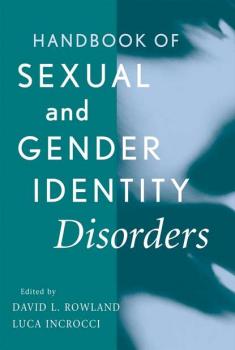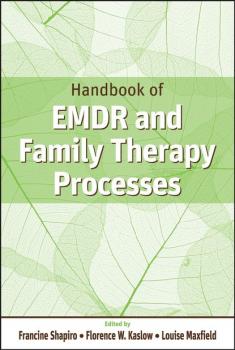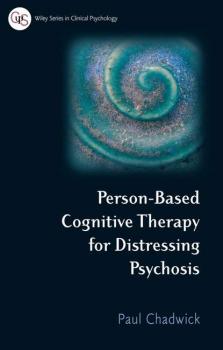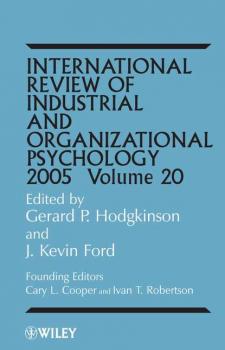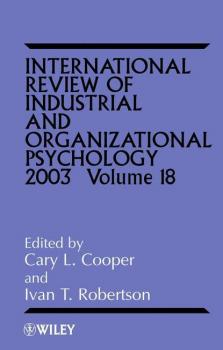Общая психология
Различные книги в жанре Общая психологияReflective Interpersonal Therapy for Children and Parents
Disruptive and aggressive behaviour in children causes significant distress to everyone involved. Tradition interventions tend to focus on changing the disruptive behaviour itself, but research shows that it is important to also focus on the underlying anxiety, anger and vulnerability that may have contributed to the child’s conduct. In this innovative book, Hermione Roff introduces Reflective Interpersonal Therapy for Children and Parents (RICAP), a new intervention that looks at the processes underpinning disruptive and aggressive behaviour problems. RICAP was developed specifically to meet the needs of children and their families, and offers a new way to think about and tackle conduct disorders. The intervention explores the relationship between anxiety and anger, the dynamics of threat and fear, and the behavioural interactions within a prime relationship. Taking a practitioner-oriented approach, Roff introduces the theory underpinning RICAP, the evidence base for the approach and how it can be put to work in clinical practice.
Psychological Responses to Eating Disorders and Obesity
This is an edited book that brings together many of the most distinguished researchers and clinicians in the field of food misuse. The papers included are drawn from the conferences on psychological approaches to eating disorders and obesity held at the University of Hertfordshire in 2005 and 2006. It presents current research while focusing on the application of this new knowledge. It covers both eating disorders and obesity in one volume, thus positioning obesity firmly at one end of the food misuse continuum. Chapters will cover subjects such as psychological and cultural aspects of food use, using CBT for treating eating disorders, and CBT group therapy for obesity.
Handbook of Sexual and Gender Identity Disorders
Complete coverage of The Handbook of Sexual and Gender Identity Disorders provides authoritative coverage of the etiology, diagnosis, and treatment of three major DSM-IV-TR classifications of sexual disorders and gender identity disorders: sexual dysfunctions, gender identity disorders, and paraphilias/atypical sexual behaviors. The first internationally contributed handbook of its kind, this practical guide provides mental health professionals as well as medical professionals with the latest information in the understanding and treatment of sexual problems and gender identity related disorders. Covering both the medical and mental health related aspects of sexual dysfunctions and gender identity disorders, topics covered include: * Male sexual arousal disorder * Female desire disorder * Female genital pain and its treatment * Aging and sexuality * Disease and sexuality * Gender identity disorders in adults * Cross-cultural issues in gender identity disorders * Paraphilic sexual disorders * Sexual addiction * Legal and privacy issues surrounding paraphilias An insightful and unique resource, the Handbook of Sexual and Gender Identity Disorders prepares mental health and medical professionals to more skillfully and compassionately recognize and address the sexual issues of those who seek their help.
Handbook of EMDR and Family Therapy Processes
Starting with the Foreword by Daniel Siegel, MD, the Handbook demonstrates in superb detail how you can combine EMDR’s information processing approach with family systems perspectives and therapy techniques. An impressive and needed piece of work, Handbook of EMDR and Family Therapy Processes provides a clear and comprehensive bridge between individual and family therapies.
Personality Disorder and Community Mental Health Teams
Practitioners in Community Mental Health Teams (CMHTs) frequently find that traditional forms of support are ineffective when offered to patients with personality disorder. This book considers the various difficulties encountered, with reference to current thinking about the origins, maintenance and treatment of personality disorder. Written by practitioners for practitioners, it provides a framework for developing effective care plans with minimal use of technical terms and jargon. Rather than promote an approach based on a single theoretical model, consideration is given to ways in which different approaches can be effectively combined within a multi-disciplinary team. The book is divided into two sections. The first outlines recent government initiatives relating to personality disorder and introduces key theories underlying psychological and biological treatments. The second focuses specifically on the role of the CMHT in relation to patients with these difficulties, including: the assessment of personality functioning developing coherent plans for treatment and support optimising the therapeutic relationship managing self-harming behaviour particular challenges faced by CMHTs, and how to overcome them the views of service users involving family, friends and carers. Personality Disorder and Community Mental Health Teams deals with the reality of services today. It is essential reading for all mental health practitioners in CMHTs working with people with personality disorder.
Person-Based Cognitive Therapy for Distressing Psychosis
This book provides a practical framework for using a person based cognitive therapy approach for addressing the range of problems experienced by people with psychosis. Chapters 1-4 provide a context for the approach and chapters 5-12 cover the clinical application of the approach. Key features include; the integration of the author’s work on Mindfulness (simple meditation technique that is similarly creating a lot of interest at present) for people with psychosis; inclusion of the two-chair method; plus a chapter on group therapy.
The California School of Organizational Studies Handbook of Organizational Consulting Psychology
Discover a wealth of issues in the field of consulting psychology with this landmark book. Explore key topics in assessment and evaluation, building teams, executive coaching, career counseling, interpersonal conflicts and relationships, benefit design, personality testing, and much more. Learn to delineate and better understand the wide array of information you are faced with, and become more adept and knowledgeable in the field of consulting psychology. This comprehensive volume has expert contributors recruited by the volume's editor–himself an eminent educator and practitioner in the field. You will get: Special issues in consulting to specific types of organizations including industry, schools, government, non-profit, and international Informative guidelines for professional practice procedures Organized sections on individual, group and organizational issues And much more!
International Review of Industrial and Organizational Psychology, 2005 Volume 20
This is the twentieth in the most prestigious series of annual volumes in the field of industrial and organizational psychology. The series provides authoritative and integrative reviews of the key literature of industrial psychology and organizational behaviour. The chapters are written by established experts and topics are carefully chosen to reflect the major concerns in both the research literature and in current practice. Continuing in the tradition of the series as a whole, this twentieth volume provides scholarly, up-to-the-minute reviews and updates of work in a number of well-established areas such as: mergers and acquisitions, burnout and health, and personality in industrial and organizational psychology. Emergent issues are also covered in chapters on social identity, emotions in organizations, the contribution of industrial and organizational psychology to ensuring safety in commercial aircraft, and the analysis of justice in human resource management decisions. Each chapter offers a comprehensive and critical survey of the chosen topic, and each is supported by a valuable bibliography. For advanced students, academics and researchers, as well as professional psychologists and managers, this remains the most authoritative and current guide to new developments and established knowledge in the field of industrial and organizational psychology. Contributors to Volume 20 Neal M. Ashkanasy, Australia Claire E. Ashton-James, Australia Shlomo Berliner, Israel Susan Cartwright, UK Jose M. Cortina, USA Naomi Ellemers, The Netherlands Stephen W. Gilliland, USA Don Harris, UK S. Alexander Haslam, UK Michael J. Ingerick, USA Samuel Melamed, Israel Layne Paddock, USA Itzhak Shapira, Israel Arie Shirom, Israel Lauren Thomas, UK Sharon Toker, Israel
International Handbook of Organizational Teamwork and Cooperative Working
In today's fast changing, hyper-competitive environment, teamwork and co-operative working enhance the organisation's adaptive capability. The team, rather than the individual, is increasingly seen as the building block of organisations and a key source of competitive advantage. The International Handbook of Organisational Teamwork and Co-operative Working provides a clear focus on the psychological and social processes that can stimulate successful cooperation and teamwork. Michael West, Dean Tjosvold and Ken Smith have brought together the world's leading authorities from a range of social science disciplines to provide a contemporary review of established and emerging perspectives. Throughout the book, processes that both facilitate and obstruct successful cooperation and teamwork are detailed, alongside guidance on best practice and methodology. The challenging and alternative perspectives presented will inform future research and practice. The result is a systematic and comprehensive synthesis of knowledge from a range of disciplines that will prove invaluable to professionals, researchers and students alike. * A systematic and coherent framework which organizes and structures the knowledge in this field * An outstanding collection of authoritative «high profile» authors * Challenging, alternative perspectives that will stimulate and enlighten future research and practice * Selective, updated bibliographies of key literatures support every chapter, a valuable resource for students, trainers and practitioners
International Review of Industrial and Organizational Psychology, 2003 Volume 18
This is the eighteenth in the most prestigious series of annual volumes in the field of industrial and organizational psychology. The series provides authoritative and integrative reviews of the key literature of industrial psychology and organizational behavior. The chapters are written by established experts and topics are carefully chosen to reflect the major concerns in the research literature and in current practice. Specific issues covered in this volume reflect the growth and complexity of the organizational psychology field, for example: Implicit Knowledge and Experience in Work and Organizations, Flexible Working Arrangements, Web-based Recruiting and Testing, Economic Psychology, Workaholism, and a review of Ethnic Group Differences and Measuring Cognitive Ability. Each chapter offers a comprehensive and critical survey of a chosen topic, and each is supported by valuable bibliography. For advanced students, academics, and researchers, as well as professional psychologists and managers, this remains the most authoritative and current guide to developments and established knowledge in the field of industrial and organizational psychology.


